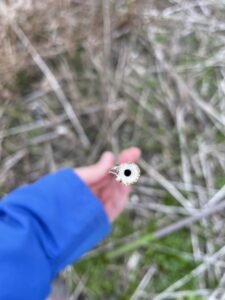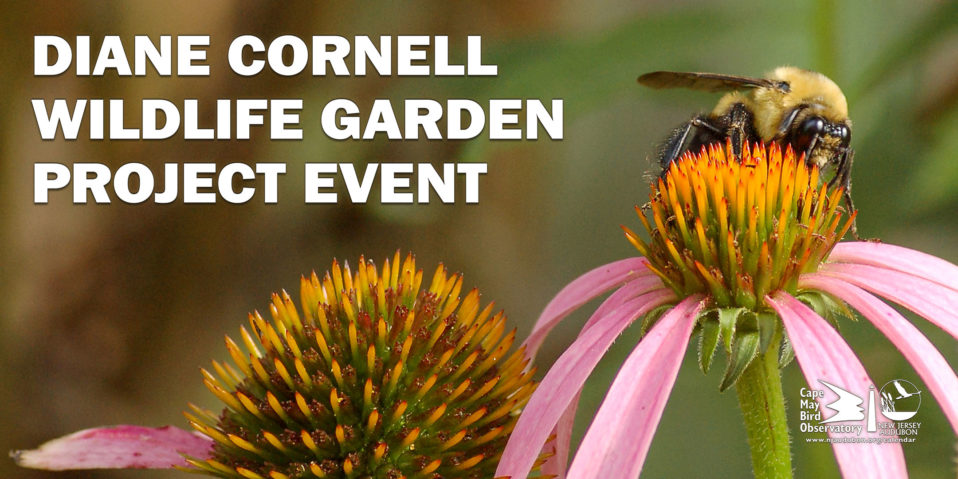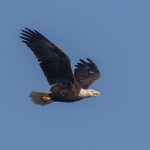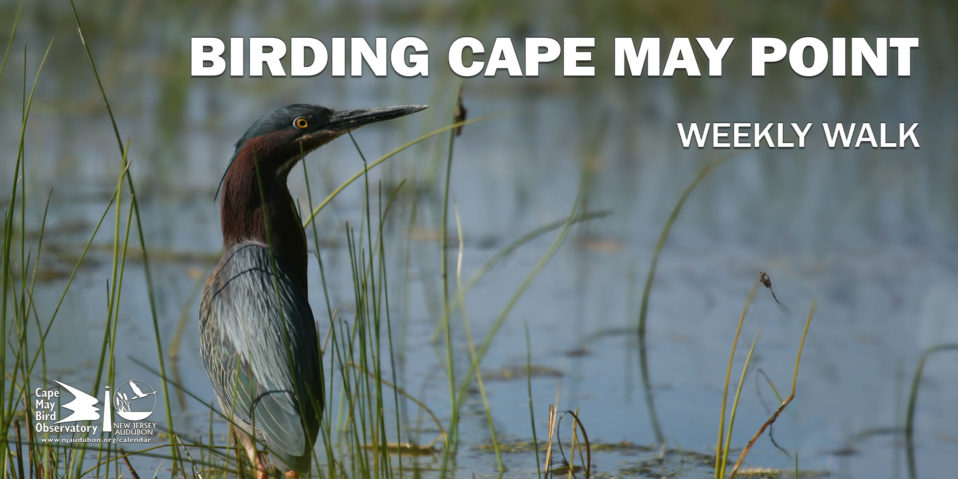Winter Gardening Tips
By Kristal Stahler
Are you a restless winter gardener? It can be difficult to sit back and wait when it comes to your garden, but your winter garden often needs very little intervention! Luckily, there are some tasks you can tackle now if you can brave the cold.
Save the Stems!
If you ‘left the leaves’ this fall you can keep a similar mantra for the winter. Commit to ‘save the stems’ in your garden or yard! Hollow plant stems provide excellent overwintering habitat for many native insects, including bees!
While it may be tempting to ‘clean up’ this dead organic material, it could be teaming with wildlife. Leaving the dead flower stalks, like the one shown here, intact over the winter allows wildlife to find safe overwintering habitats in your backyard. If you want to remove these stems, you can cut the stalks at their base and stack them on their side so bees can safely escape, rather than mow them down and crush them.

photo by Jack McDonough
Plan, Prepare, and Purchase!
Now is a great time to start planning for the spring. Clear out your shed and take inventory of your tools. Asses any of your tools need repairing or replacing after the busy fall season.
Next, you can take a good look at your garden and strategize for the upcoming spring months. Reflect on your previous garden layout and decide if there are any changes you want to make this year. If you want to get your hands dirty, use this time to rearrange or add any hardscape elements (benches, paths, nesting boxes, bird baths, etc.) to your outdoor space. You can also consider if you’ve provided ample food, water, and shelter for wildlife. Look for ways to improve your garden space to provide even more resources to attract wildlife!
Once you’ve determined what you want your spring garden to look like, you can purchase or preorder your seeds now! Many native garden suppliers receive high demand in the early spring months. Now may be a good time to order your seeds to stay ahead of the curve.
Mind the Mulch!
Many gardeners prefer to add a layer of mulch to their gardens this time of year, but this can be determinantal to many native bees. Too much mulch can block access to soil for many ground-nesting bees. Some types of mulches can also be toxic for a variety of native insects. If you want to mulch your garden, do so sparingly and opt for organic leaf litter instead of commercial mulch!
Post supported by the Diane Cornell Wildlife Gardening Project
Sign Up For Our Gardening For Wildlife Webinars HERE









